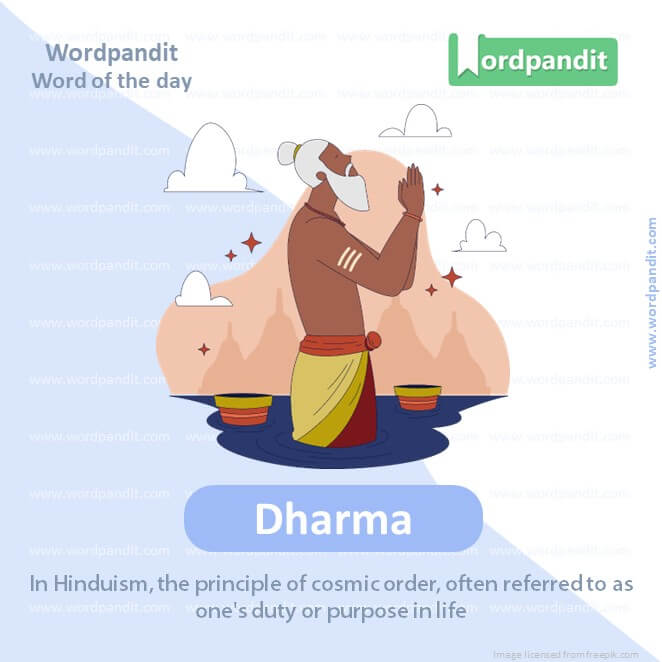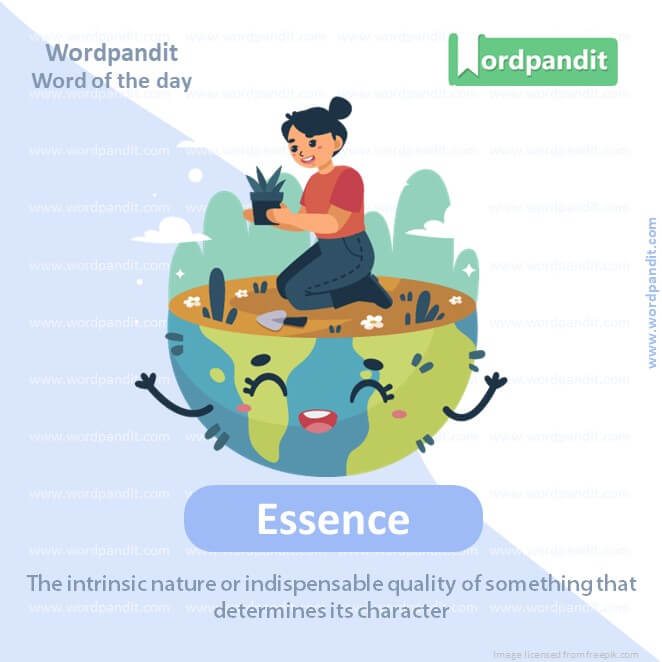Daily Vocabulary Words: List of Daily Used Words in Leading International Newspapers
Hi there. Welcome to this special section @ Wordpandit.
Our endeavour here is very simple: to highlight important daily vocabulary words, which you would come across in leading newspapers in the country. We have included the following newspapers in our selection:
• The New York Times
• The Washington Post
• Scientific American
• BBC
• The Guardian
• Psychology Today
• Wall Street Journal
• The Economist
We are putting in extensive work for developing your vocabulary. All you have got to do is be regular with this section and check out this post on a daily basis. This is your repository of words that are commonly used and essentially, we are posting a list of daily used words. Hence, this has significant practical application as it teaches you words that are used commonly in leading publications mentioned above.
Visit the website daily to learn words from leading international newspapers.

WORD-1: Arrival fallacy
CONTEXT: “The idea of reaching a certain level of success and finding happiness is often termed as the ‘arrival fallacy’. Many professionals discover that achieving a career goal doesn’t necessarily equate to long-term contentment.”
SOURCE: The New York Times
EXPLANATORY PARAGRAPH: The arrival fallacy is like thinking that when you get something you really want, everything will be perfect forever. It’s when you believe that reaching a goal, like having a special toy, will make you super happy all the time, but it doesn’t always work that way.
MEANING: The belief that once you achieve a certain goal, you’ll be happy, but upon reaching it, you realize happiness remains elusive (noun).
PRONUNCIATION: Uh-rahy-vuhl-fuh-luh-see.
SYNONYMS: Success illusion, Happiness misconception, Dream delusion, Achievement fantasy
USAGE EXAMPLES:
1. Some people fall into the arrival fallacy, thinking a new job will solve all their problems.
2. Winning the lottery didn’t bring the happiness they expected; it was an arrival fallacy.
3. She realized that getting the new bike was just an arrival fallacy when it didn’t make her as happy as she thought.
4. Many people learn that the arrival fallacy doesn’t guarantee a perfect life.

WORD-2: Bauji
CONTEXT: “In the acclaimed movie, the character ‘Bauji’ stands as a symbol of wisdom and traditional values amid a rapidly changing society.”
SOURCE: BBC
EXPLANATORY PARAGRAPH: In some families, especially in India, ‘Bauji’ is a loving name kids use for their grandfathers. It’s a way to show respect and affection to the wise and caring older person in the family.
MEANING: A term of endearment in Hindi, often referring to one’s grandfather or an elder male (noun).
PRONUNCIATION: Bow-gee
SYNONYMS: Grandpa, Granddad, Gramps, Poppop
USAGE EXAMPLES:
1. I love spending time with my Bauji; he tells the best stories.
2. Bauji always has a pocketful of candies for us.
3. When I grow up, I want to be as wise as my Bauji.
4. Family gatherings are special when Bauji is around.

WORD-3: BhagavadGita
CONTEXT: “The Bhagavad Gita, an ancient Indian scripture, has been studied by leaders worldwide for its insights on leadership, duty, and the nature of life and death.”
SOURCE: The Guardian
EXPLANATORY PARAGRAPH: The Bhagavad Gita is like a very old book from India that teaches important lessons about life, duty, and how to be a good person. It’s like a guidebook to being kind and wise.
MEANING: A 700-verse Hindu scripture that is part of the Indian epic Mahabharata (noun).
PRONUNCIATION: Bhuh-guh-vuhd Gee-tuh
SYNONYMS: None needed, it’s a specific name.
USAGE EXAMPLES:
1. Many people read the Bhagavad Gita to find wisdom and guidance.
2. The Bhagavad Gita is a sacred text in Hinduism.
3. The lessons from the Bhagavad Gita inspire people to live virtuously.
4. Scholars often study the Bhagavad Gita to understand its profound teachings.

WORD-4: Dharma
CONTEXT: “In Eastern philosophies, ‘dharma’ refers to one’s duty or the righteous path. It signifies the moral compass guiding an individual through life.”
SOURCE: Al Jazeera
EXPLANATORY PARAGRAPH: Dharma is like your inner compass that helps you know what’s right and wrong. It’s the sense of doing good things and being fair to others.
MEANING: In Hinduism, the principle of cosmic order, often referred to as one’s duty or purpose in life (noun).
PRONUNCIATION: Darmuh
SYNONYMS: Duty, Moral code, Ethics, Righteousness, Virtue
USAGE EXAMPLES:
1. Following your dharma means being kind to others and doing your best.
2. In Hinduism, dharma plays a significant role in leading a good life.
3. Knowing your dharma helps you make wise choices.
4. He believes that living according to his dharma brings him inner peace.

WORD-5: Essence
CONTEXT: “Capturing the essence of a city is more than just noting its architecture; it’s about understanding its people, culture, and the rhythm of daily life.”
SOURCE: The Washington Post
EXPLANATORY PARAGRAPH: Essence is like the special flavor of your favorite ice cream. It’s the most important and yummy part of something that makes it what it is.
MEANING: The intrinsic nature or indispensable quality of something that determines its character (noun).
PRONUNCIATION: Es-uhns
SYNONYMS: Core, Heart, Soul, Crux, Quintessence, Main element, Fundamental
USAGE EXAMPLES:
1. The essence of a good story is a strong plot and interesting characters.
2. The essence of friendship is trust and support.
3. Nature’s essence can be seen in the beauty of a blooming flower.
4. In cooking, spices add the essence of flavor to a dish.
WORD-6: Proffer
CONTEXT: “The delegates at the conference were quick to proffer their suggestions, hoping to influence the final resolution.”
SOURCE: The Economist
EXPLANATORY PARAGRAPH: When you proffer something, it’s like offering a friend a piece of your favorite candy. You hold it out to them, saying, “Would you like some?” It’s a nice way to share.
MEANING: To offer something to someone, usually by holding it out to them (verb).
PRONUNCIATION: Prof-ur
SYNONYMS: Offer, Extend, Present, Give, Handover, Offer up, Provide
USAGE EXAMPLES:
1. He proffered his help when he saw his friend struggling.
2. She proffered a bouquet of flowers as a gesture of goodwill.
3. The waiter proffered the menu to the guests.
4. It’s polite to proffer your seat to an elderly person on the bus.
WORD-7: Mythical
CONTEXT: “The dragon, a mythical creature revered in many cultures, often symbolizes strength, power, and mystery.”
SOURCE: Scientific American
EXPLANATORY PARAGRAPH: Mythical things are like creatures and stories that may not be real but are fun to imagine. Think of magical unicorns or brave dragons in fairy tales.
MEANING: Something related to myths or legends, often describing creatures or stories that may not be real (adjective).
PRONUNCIATION: Mith-i-kuhl
SYNONYMS: Legendary, Imaginary, Unreal, Fantasy, Fictional, Mythic
USAGE EXAMPLES:
1. The book is filled with mythical creatures and magical adventures.
2. Many ancient civilizations had mythical gods and heroes.
3. The forest is said to be inhabited by mythical creatures.
4. Myths and legends often feature mythical beings.
WORD-8: Insuperable
CONTEXT: “The challenges of climate change might seem insuperable, but with global cooperation and determination, we can forge a path forward.”
SOURCE: The Guardian
EXPLANATORY PARAGRAPH: Something insuperable is like a challenge that seems too big to overcome, like trying to lift a giant elephant all by yourself.
MEANING: Something that cannot be overcome or conquered because it’s too difficult or impossible (adjective).
PRONUNCIATION: In-suh-peer-uh-buhl
SYNONYMS: Unbeatable, Insurmountable, Overwhelming, Unconquerable, Invincible, Unassailable
USAGE EXAMPLES:
1. The mountain’s height appeared insuperable to the climbers.
2. She faced an insuperable obstacle on her path to success.
3. The team’s determination made the seemingly insuperable task achievable.
4. Despite the odds, they were determined to conquer the insuperable challenge.
WORD-9: Gauzy
CONTEXT: “The fashion show concluded with models adorned in gauzy fabrics, evoking a sense of ethereal beauty and lightness.”
SOURCE: The New York Times
EXPLANATORY PARAGRAPH: Imagine a curtain that’s so thin you can almost see through it. That’s like something gauzy, where it’s so light and see-through that it’s almost like air.
MEANING: Something that is very thin, light, and almost transparent, like gauze or a delicate fabric (adjective).
PRONUNCIATION: Gaw-zee
SYNONYMS: Sheer, Transparent, Diaphanous, Ethereal, Delicate
USAGE EXAMPLES:
1. She wore a gauzy scarf to keep cool in the summer heat.
2. The curtains in the room let in a gauzy, soft light.
3. Her wedding dress had a gauzy veil that made her look like a fairy.
4. The morning mist gave the landscape a gauzy appearance.
WORD-10: Impeded
CONTEXT: “Economic growth in the region has been impeded by political instability and frequent trade disputes.”
SOURCE: BBC
EXPLANATORY PARAGRAPH: When something is impeded, it’s like having a big rock in your path when you’re riding your bike. It slows you down or makes it hard to keep going smoothly.
MEANING: To slow down or make it difficult for something to happen or progress (verb).
PRONUNCIATION: Im-peed-ed
SYNONYMS: Hinder, Obstruct, Block, Delay, Slow down, Hold back, Interfere with
USAGE EXAMPLES:
1. The heavy traffic impeded our journey to the park.
2. Lack of funds impeded the construction of the new school.
3. His fear of public speaking impeded his ability to give a confident presentation.
4. The mud on the path impeded their progress during the hike.
Vocabulary 100 Words
Diving into the exciting waters of language learning, encountering a list of ‘vocabulary 100 words’ is a common step. These lists, often tailored to specific proficiency levels or topics, present microcosms of the language, cradling essential words that broaden our linguistic comprehension. However, to effectively grasp ‘vocabulary 100 words’, a well-crafted strategy is imperative.
The cornerstone of learning any ‘vocabulary 100 words’ lies in understanding each word with depth. This involves more than just registering the meaning. It extends to understanding its use in different contexts, its nuances, and its connotations.
When navigating ‘vocabulary 100 words’, pacing is extremely important. Rather than trying to absorb all the words at once, a steady approach of learning a few words every day promotes better retention. This assures your brain is not overwhelmed with information, resulting in more effective learning.
Interactivity adds a significant boost while engaging with ‘vocabulary 100 words’. Employ tools like flashcards or digital language-learning apps to make your learning experience more engaging. Regular tests or quizzes provided by these platforms can be beneficial in gauging your progress and identifying areas that need additional work.
Real-world usage significantly enriches understanding of ‘vocabulary 100 words’. Incorporate the words into your daily conversations, writing, or social media interactions. This practice element not only empowers retention but also bolsters your confidence in using these words correctly.
In conclusion, mastering ‘vocabulary 100 words’ is an enriching journey that calls for systematic learning, paced approach, engaging tools, and practical application. As you venture down this path, you’ll find the ‘vocabulary 100 words’ transforming from daunting lists into friendly allies, accompanying you on your thrilling linguistic exploration.











